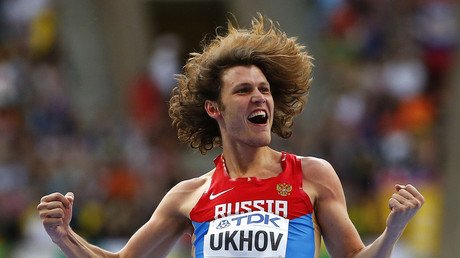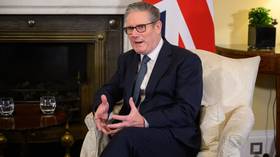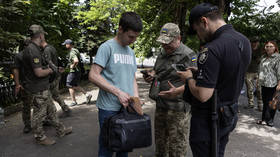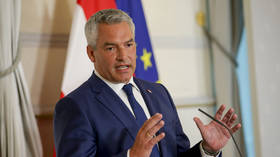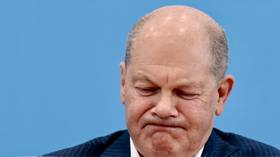Why were ‘journalists’ lobbying for a blanket ban on Russian athletes?
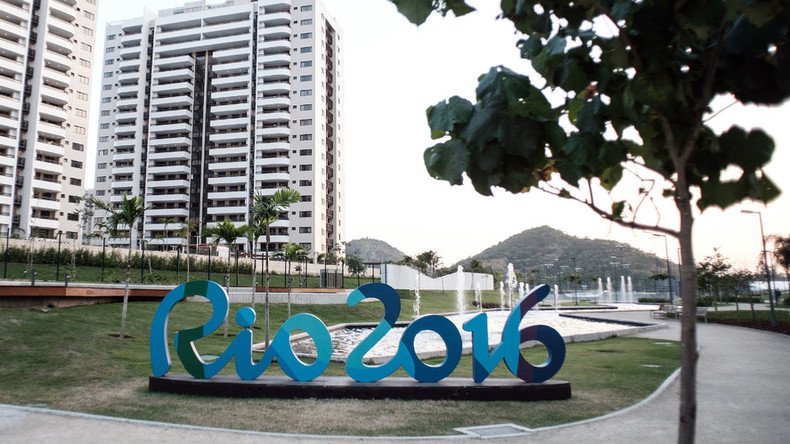
I’m going to go out on a limb here and say that if the latest Olympic doping scandal involved US athletes and unproven allegations of state-sponsored cheating, British newspapers would not be calling for a ban on all American athletes from the Rio Olympics.
They’d probably be calling - in concerned tones, of course - for each American athlete to be assessed individually and not punished for the sins of others, while simultaneously loudly screaming accusations that the whistleblower was secretly working for Vladimir Putin.
I don’t know, it’s just a hunch.
Journalists turned activists
As it turns out, proponents of a blanket ban on Russian athletes failed to convince the International Olympic Committee (IOC), which decided Sunday to leave the decisions on individual athletes up to their respective international sports federations and put the onus on athletes to prove they are clean. But the failure of ban proponents to convince the IOC certainly was not for lack of trying - because they truly did their best to have the innocent punished alongside the guilty and get the whole Russian team thrown out.
The UK’s Times newspaper, for example, took it upon itself to organize a letter to the IOC. It wrote: “We ask that you ban the entire Russian team from the Rio 2016 Olympics. It is time to take a stand against the institutionalized doping that would otherwise pollute the Games. Now is not a time for half measures.”
The letter was published on the Times’ website not even as an editorial, but under chief sports reporter Martyn Ziegler’s byline with the headline: “Please ban Russia from the Rio games.” It’s like a chief foreign affairs reporter for a British newspaper organizing a letter to the UN calling for sanctions against another country over the wrongdoing of certain individuals in that country and the unproven wrongdoing of others. In other words, totally unprofessional and nothing whatsoever to do with journalism.
But Germany’s Bild tabloid, which is notoriously biased against Russia at the best of times, went a step further, with its chief sports editor Walter Straten announcing that if Russian athletes were allowed to participate in Rio, Bild would have them “exempted” from its medal count and declare all Russian athletes results “null and void”. Yes, all of them. A mature approach, to be sure.
On the same day, the UK’s Guardian published an editorial arguing there was “no place in Rio for cheats” which is absolutely fair enough, if they hadn’t also been calling for clean athletes to be punished along with dopers in an “across-the-board” exclusion of Russian athletes.
Focusing on Russia
Veteran Olympics reporter and New Zealander Joseph Romanos drew attention in June to the disproportionate focus on Russian doping given the numerous other Olympic doping scandals that have received less attention. He referenced Kenya and Jamaica in particular as countries currently dealing with “terrible doping problems” and noted the widespread use of illegal drugs in sport across multiple countries and sports.
Can't help thinking that the focus on Russian doping is allowing others to continue in the shadows.
— Philip O'Connor (@philipoconnor) July 22, 2016
In a column for Radio NZ, he wrote: “When the IOC recently re-tested urine samples from the 2008 Beijing Olympics, it found a further 31 athletes from 12 countries had cheated. Yet nearly all the talk is about the Russians.”
He expressed also a certain amount of incredulity in the IOC’s statement last month that it had a “zero tolerance” policy for doping, citing cases when that obviously had not been true. Zero tolerance “was not the case in the 1970s and 1980s, when East Germany was allowed to get away with state-sponsored cheating. Or in the 1990s, when the same thing happened with Chinese athletes and swimmers,” he wrote.
He also stressed that drug cheating was not some phenomenon cropping up primarily in communist or formerly communist countries, suggesting that readers take time to read the list of American athletes who have been caught doping. “There have been literally hundreds of American drug cheats,” he added. If the IOC really wanted to make sure no dopers were competing in Rio, the only legitimate answer would be to “ban every country” entirely.
That’s not to mention, by the way, the British doctor that was recorded claiming he had doped up to 150 sportspeople over six years — or the fact the taxpayer-funded UK Anti-Doping Agency (Ukad) was given evidence about his activities two years ago and failed to act on them.
Doctor claims he doped sports stars including #EPL footballers. Read more in @thesundaytimes#dopingscandalpic.twitter.com/GBFyfExCAM
— The Sunday Times (@thesundaytimes) April 2, 2016
Wishful thinking
Nonetheless, many Western journalists were in the tank for a total ban on Russia in recent weeks. Not only that, but they appeared to be attempting to will it into being with premature headlines marking the whole affair done and dusted.
Excited by the prospect of a Russian ban and the opportunities for gloating that it would present, they were perhaps also becoming jittery, worrying the IOC would rule against them and refrain from an outright ban, which in the end it did. In a concerted effort to avoid that and put some more pressure on the committee, they ran stories the day before the IOC decision claiming exactly the opposite outcome in advance.
Oops. Obviously the DM's "well-placed sources" weren't that well-placed after all. Wishful thinking? pic.twitter.com/DBePHqmxvP
— Danielle Ryan (@DanielleRyanJ) July 24, 2016
The Daily Mail, for example, ran with the premature headline: “ENTIRE Russian team of 387 athletes will be banned from competing at the Rio Olympics as punishment for their country’s state-sponsored doping program.”
This, the Mail said, was according to “well-placed sources” which obviously were not that well-placed at all. The Sun ran with the same story, adding a “good riddance” to their headline and claiming underneath that 387 athletes would certainly be banned. Both papers have since reported on the IOC decision, but neither original story has been updated to reflect reality.
The Times, The Guardian, Bild and others are now almost certainly outraged by the IOC’s decision and the disappointment that seeing the Russian flag in Rio will bring, despite all their best efforts. No doubt that disappointment and outrage will spawn a few more attempts to discredit all Russian athletes in coming weeks.
Watch this space.
The statements, views and opinions expressed in this column are solely those of the author and do not necessarily represent those of RT.

